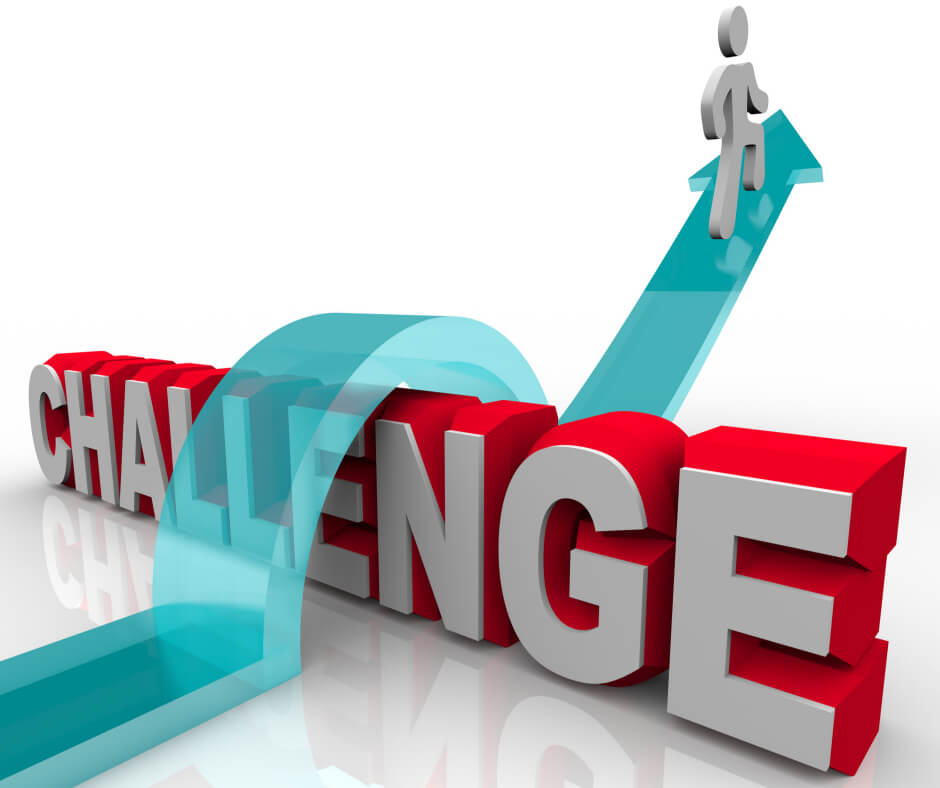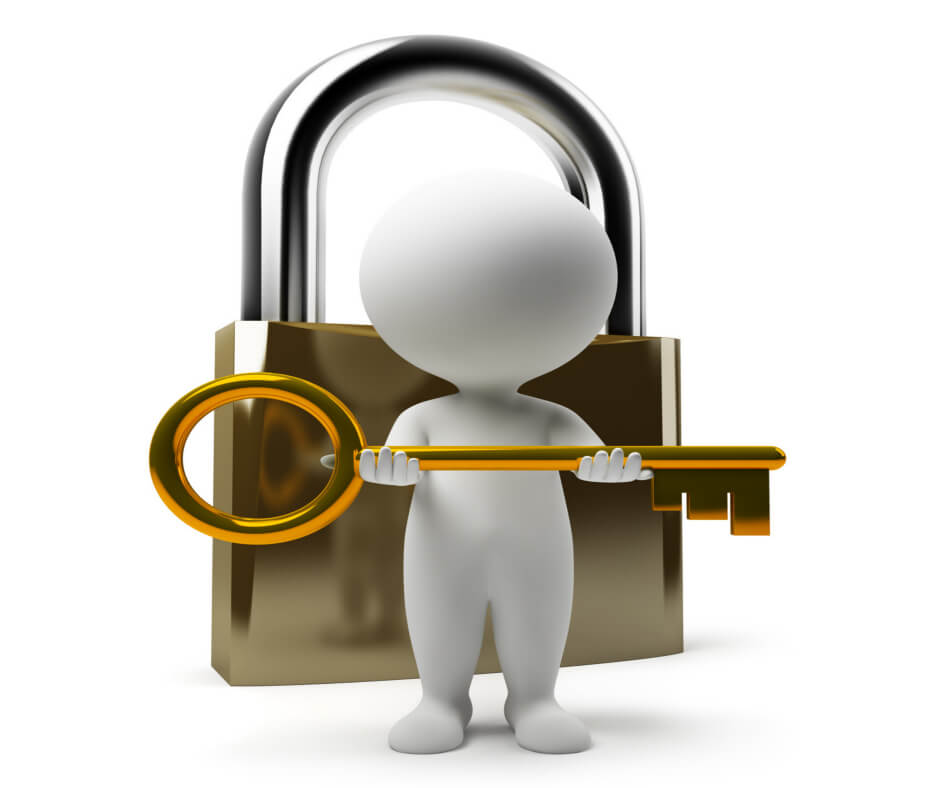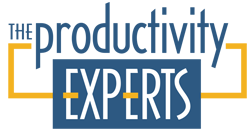This business we created to fuel our dreams is far too important to allow ourselves to get stuck or derailed due to a narrow view. Developing objectivity as a skill allows you to get out of your own way. If you’re able to pull it off, it will impact you and your business in a very positive way – on a number of levels – which makes it a good thing to strive for.
What is objectivity and how do you achieve it?
The trick is how to harness that objectivity. How can you learn to take that step back and gain perspective for yourself when obstacles and challenges present themselves?

Think about times you have talked with a friend or colleague and they were describing a situation that was causing them stress or worry, or keeping them stuck. You probably sympathized with the fact that they were facing that challenge, but you were most likely looking at it far more practically and objectively than if it was your own issue. You were able to see a bigger picture. You weren’t emotionally invested in the outcome. That impartiality opens up whole new lines of thinking and allowed you to offer more productive solutions. The goal here is to get that same objectivity for yourself, too.
Self-awareness is key to getting that objectivity for yourself. Chances are, you react on auto-pilot when situations arise and your initial instinct is to move forward as you always have. If you can recognize that and make a conscious decision to stop and make a shift from the start, you will be on your way to making the behavioral change toward overcoming obstacles using a more objective approach. Just also be aware that your mindset will come into play and can make moving forward in a different way either easier or more difficult.
Don’t Let Mindset Be a Roadblock to Objectivity When Overcoming Obstacles
We all have a mindset, whether we are aware of it or not. Our mindset influences how we interact with the world around us, including how we face challenges. We also all have personality traits that tend to influence our mindset. Your unique collection of traits – which are influencing your mindset – is what I refer to as your Natural Productivity Style™.
Your natural style includes things like…
- how cautious you are
- how patient or demanding you might be
- how you problem solve and make decisions
- how determined, reflective, passive, predictable, or systematic you are
- and many other things
Looking at those traits, it’s not hard to see how your response to obstacles and challenges could be affected by any one of them. It’s also easy to see how those traits could affect your ability to achieve objectivity in terms of overcoming obstacles.
For example, if you are someone who is high on the cautious scale, you may tend to have a more fixed/limiting mindset and be more inclined to act as you always have. Attempting to take a new approach to something can feel very uncomfortable for you. Sticking to what is familiar – even if it is not effective – feels safer, so that is the route you might instinctively choose.
If you are higher on the passive scale, you may be more inclined to avoid facing challenges altogether and feel defeated, like a deer in the headlights, when obstacles present themselves. In terms of your mindset, that passiveness could cause you to lean more toward fixed or limiting, and hold you back.
You are less likely to have a solution-oriented mindset and proactively tackle challenges if those two traits are dominant for you. You can learn to work with those traits, but it requires awareness and intentional actions.
On the other hand, if you tend to naturally be more daring or reflective, you might see obstacles as opportunities to grow and objectivity might be an easier shift for you. You would tend to have more of a growth mindset and embrace the challenge the obstacle presents.
It’s all part of the bigger puzzle of how you, as the business owner, play a role in outcomes for your business. So, I encourage you to proactively seek to understand the traits that might hinder your ability to be objective.

Take the time to explore your Natural Productivity Style as part of your effort to manage obstacles and challenges in a more objective way. Once you do, you can implement strategies that will help you override any natural tendencies that might be holding you back and learn to use objectivity as a powerful tool in overcoming obstacles going forward.
Overcoming Obstacles Using Objectivity
Breathe, Take Control, and Take Action.
Starting from a calm, centered place will help you gather some perspective and frame a problem more objectively. Taking a few deep breaths is a good way to calm your body and mind when a challenge or obstacle presents itself. Taking a walk to clear your head or taking a few minutes to journal on whatever swirling storm is gathering in your mind at the moment are also good ways to ‘center’ yourself. Then you can start to take control and take action.
Taking control involves clearly defining the obstacle or challenge. You could even consider doing a SWOT analysis of the situation. The SWOT analysis for this will be a little different from a typical SWOT analysis, but it can help you look at issues from a practical perspective, rather than emotional. (You can download this pdf to use as a guide.)
To do a SWOT analysis, start by clearly defining the obstacle or challenge, then ask yourself the following questions.
S = Strengths – What are your potential strengths for dealing with this situation? What resources are currently available and how can you use them? Who within your support network can you turn to for help, if needed?

W = Weaknesses – What are your potential weaknesses? Not enough financial resources? Are you lacking knowledge or skills to fix the issue? Do you have behaviors or beliefs that might prevent you from taking decisive action?
O = Opportunities – What resources are out there to help you navigate this challenge? Is there a way to turn this challenge into a positive for you and your business?
T = Threats – What are the immediate threats to your business from this situation and how can you minimize those threats?
Once you have defined the strengths, weaknesses, opportunities and threats around the obstacle you are facing, you can use the insight you’ve gained to help formulate solutions. Make a list of potential solutions. Consider all options objectively, choose the plan for overcoming the obstacle, then start taking action and implement the solution you have chosen.
Cultivate a mindset of acceptance, growth, and learning.
In other words… consciously set the usual expectations aside, be open minded, and remove emotions from the equation – for now.
As mentioned above, our level of emotional investment is one of the reasons objectivity can be so hard with our own obstacles. Our mindset also affects how we view and handle obstacles.
We have certain ideas about how things should be done, and some of us can even be somewhat stubborn when it comes to exploring possibilities for handling something in a new way. Just remember… if your natural inclination is to resist new approaches, setting long-held beliefs and behaviors aside may be extra challenging for you, but it can be done.
Be willing to set your usual expectations aside. Stop and think about your ‘gut reaction’ and what your typical response might be, but don’t move forward with it right away. Give it some thought. If what you would normally do hasn’t worked for you in the past, make a different choice. Consciously choose a plan, based on your insight into yourself and the situation. Realize that there is more than one way to move forward, and weigh your options. When you do, you will feel empowered.
Use every obstacle as an opportunity to build those mindset and objectivity muscles, and you will be stronger moving forward. Each time you do it, overcoming obstacles using objectivity will become easier.
Finally, here are just a couple more suggestions.
Be patient with yourself. Know this too shall pass.
We are often harder on ourselves than anyone else could ever be. This, too, can be a trait that’s tied to your personality and Natural Productivity Style. If you lean toward the cautious side or being a perfectionist, you might see making a mistake as something to fear, or be quick to judge yourself when challenges arise. Remind yourself that all you can do is your best in any situation. Remind yourself that no one is perfect. And be patient with yourself as you learn to be more objective when facing challenges.
Going back to the example of talking with a friend or colleague who was struggling and shared their struggle with you, chances are your view of them wasn’t harsh or critical. You were focused on helping them find a solution. You can give that gift to yourself, too! Treat yourself as you would a dear friend or colleague. Objectivity will relieve the temptation to blame or judge yourself.
Solutions rarely come when we’re engaged in blaming or judging. Turning that kind of negativity on ourselves (or others) is a waste of energy. Set your criticism of yourself aside, remember that this is just a situation, there is a solution, and someday soon this will be in the rearview mirror – just like other obstacles or challenges you have faced in past are now.
So, consciously turn off the inner critic, or

any other negative messages swirling in your mind, and reinforce the positive you know exists. Remind yourself that you are capable. You are strong enough to face any storm. You have the intelligence and the tools you need to overcome obstacles. Most importantly, create the mantra that you choose to see obstacles and challenges as opportunities to learn and grow. Take the leap to a positive, growth mindset. That alone can relieve a lot of emotional stress and start to shift your thoughts and feelings about yourself in a more positive direction.
Save the evaluation of what happened for when it does pass.
The obstacle or challenge you are facing may very well be something you could have avoided. Maybe decisions you made even brought it on, but none of that matters right now. There will be a time for evaluation of what happened and how you can position yourself in the future to mitigate the chances it will ever happen again, but that time is NOT in the middle of brainstorming and implementing solutions.
When the time does come for evaluation (and it should), make sure you ask yourself the hard questions, as well as the right questions. Be willing to look at it all fearlessly AND objectively. Be as honest with yourself as you can be. Weaknesses and mistakes are not things to fear. They are opportunities to learn, grow, and be better. Learning to see them that way is a life-changing mindset shift!
Also, get some support as you go through this process – a business coach, mastermind group, or trusted friend/colleague who is also a business owner. Any of these can help you get to the heart of what happened and help you move forward in a proactive, more objective way. They can also be great support for when you’re not facing a challenge or obstacle!
Facing challenges in your business?
Having support can make all the difference! Schedule a complimentary call with Cathy to discuss your business and the challenges you are facing.


